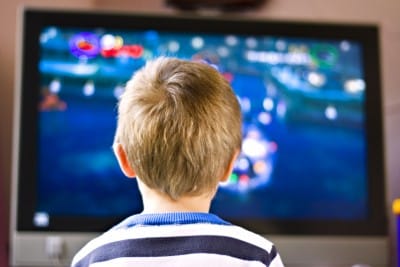According to a study by researchers at the Universite de Montreal, Hopital Sainte-Justine and the University of Michigan, watching too much TV can be bad news for a child’s brain development.
The parents of over 1,300 children were questioned on their children’s TV use at 29 months of age, 58 months, and again at 10 years. The researchers compared the TV use findings with each child’s academic records and medical evaluations. Factors such as the child’s temperament, family, and parental education were controlled against to try to paint a portrait of how television affected each child’s ability to focus, process complex information and think logically.
The study’s leader, Linda Pagani, the professor and researcher at Universite de Montreal and Sainte Justine, said this study shows exactly how habits such as TV viewing in the early years can influence many areas of their life later on.
“We found every additional hour of TV exposure among toddlers corresponded to a future decrease in classroom engagement and success at math, increased victimization by classmates . . . a more sedentary lifestyle, higher consumption of junk food and, ultimately, higher body mass index,” Pagani said.
Because the toddler years are important years in developing human habits, a toddler who spends too much time watching television is going to behave and think differently than a child who views TV rarely or never. The American Academy of Pediatrics recommends toddlers not watch any TV before the age of 2, and after that for less than two hours each day. Yet Pagani says that between the ages of 2 and 4, even slight TV watching can have a negative impact.
“TV watching is a passive activity, intellectually and physically,” said Pagani, who wanted to see how even moderate television watching in early childhood could have a lasting effect.
Television watching has been related to increased risks for obesity, problems in academic settings, and bullying. -Summer, staff writer
Related Articles:







